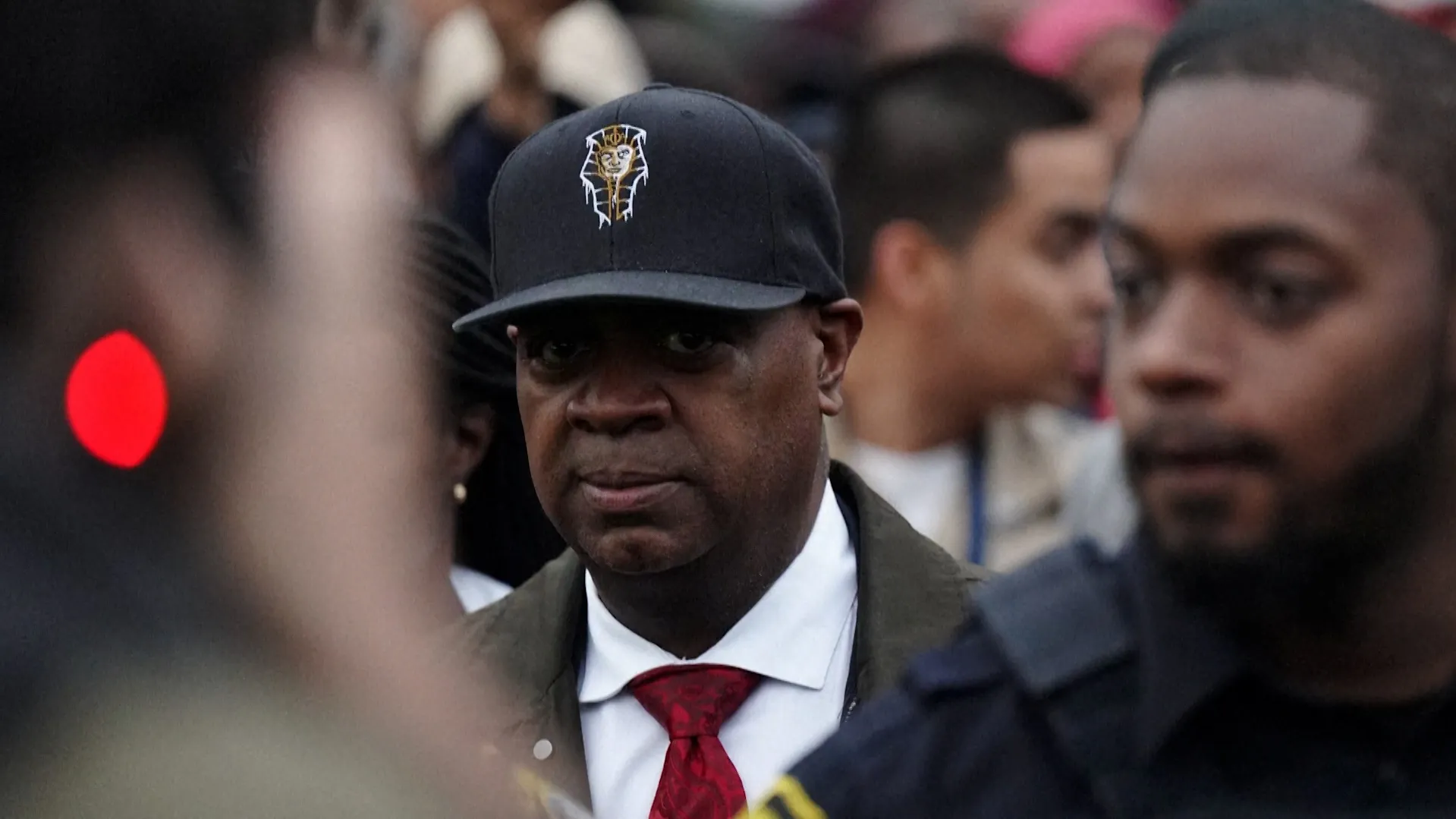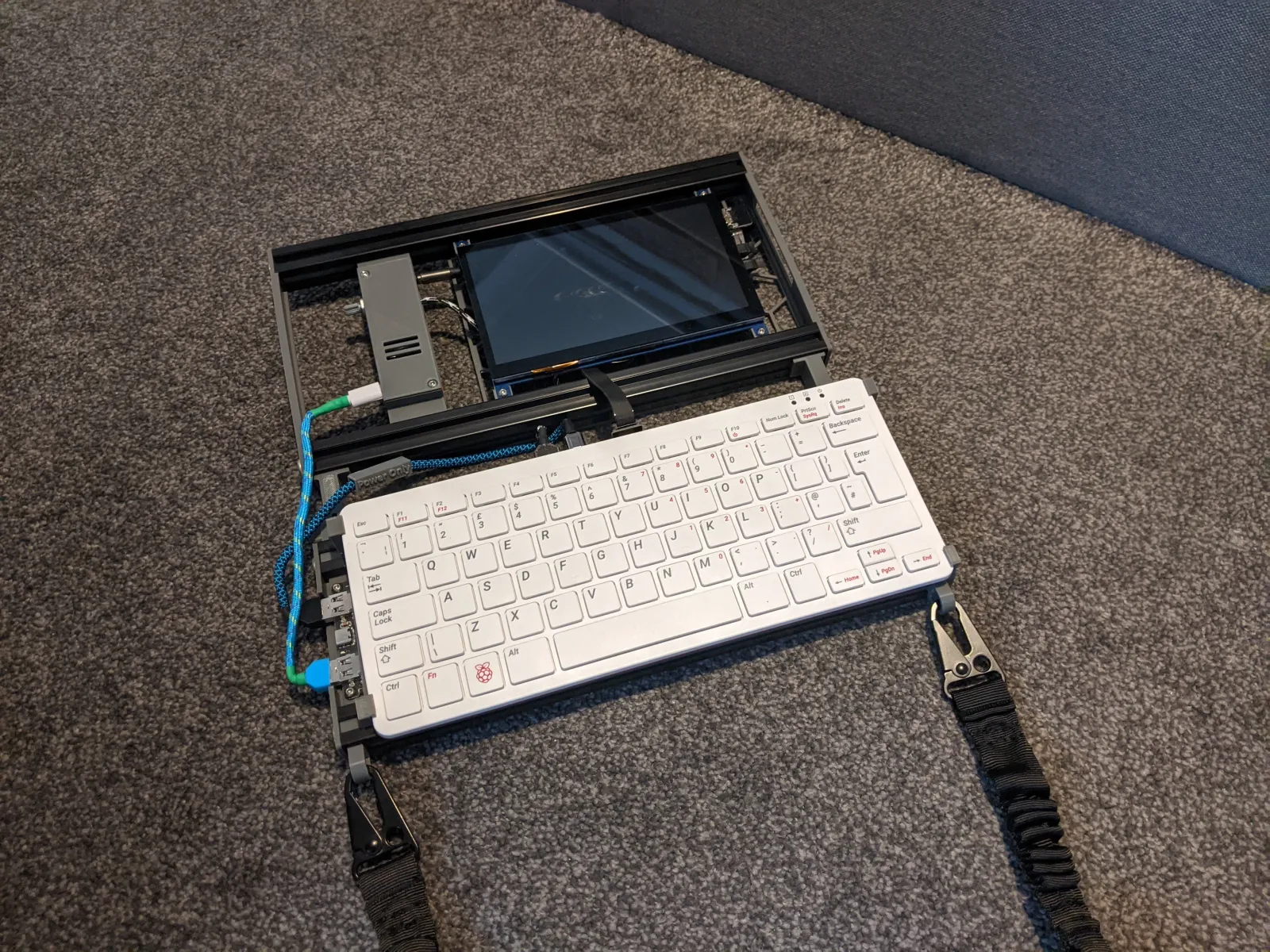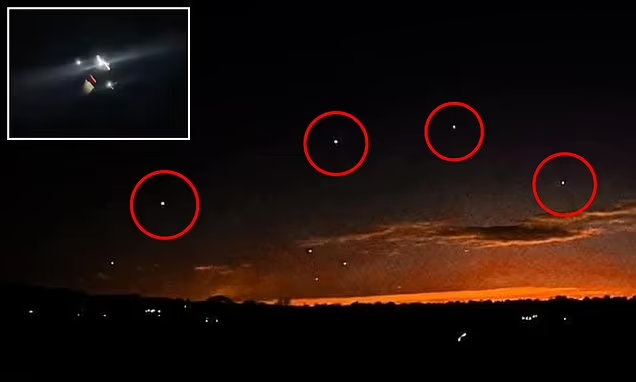On May 9, 2025, Newark Mayor Ras Baraka was arrested outside the Delaney Hall Immigration and Customs Enforcement (ICE) detention facility in Newark, New Jersey. Baraka, a Democratic candidate for New Jersey governor, was accompanying three Democratic members of Congress—Representatives Bonnie Watson Coleman, Rob Menendez, and LaMonica McIver—on what they described as an oversight visit to inspect the facility’s operations. The facility has been under scrutiny for alleged permit violations and lack of transparency.
According to a criminal complaint filed by Ricky Patel, Special Agent in Charge at Homeland Security Investigations (HSI) Newark, Baraka was charged with trespassing after allegedly ignoring multiple warnings to leave the premises. Baraka disputed this characterization, stating he had been on the property for over an hour without receiving any directives to leave and that his arrest occurred after he had already exited the facility’s secure area.
The incident has generated considerable political controversy. Baraka’s supporters argue his arrest was politically motivated, particularly given his gubernatorial campaign and long-standing opposition to the facility’s operations. Critics of the federal response highlight the broader tensions between local and federal authorities regarding immigration enforcement and the use of private detention centers.
Baraka was released from custody after approximately five hours and is scheduled to appear in court on May 15. The case continues to underscore the complex dynamics of immigration policy enforcement and the tensions between different levels of government authority.
Questions of Authority and Oversight
The arrest of a sitting mayor during what appeared to be an official oversight visit has raised urgent legal and constitutional questions. Baraka and the congressional delegation were attempting to inspect the Delaney Hall facility in response to growing concerns about its legitimacy and alleged violations of municipal code. In previous months, Newark city officials have questioned whether the facility, operated by a private contractor, is even permitted to detain immigrants under federal contracts without proper local approval—a point Baraka emphasized repeatedly in the aftermath of his detainment.
Legal experts have noted that mayors and city officials typically have broad rights to access municipal or quasi-public properties within their jurisdiction—especially when public safety or regulatory compliance is at stake. “If the mayor of a city cannot walk into a facility that is operating without confirmed permits, then we have a serious issue of democratic oversight,” said one civil liberties attorney quoted by CBS News.
Adding fuel to the fire, the delegation’s visit had been publicly announced and coordinated in advance with the intention of observing facility conditions, not staging a protest. Surveillance footage and bodycam videos released after the incident have only added to the confusion, with some clips showing Baraka calmly speaking with officers—undermining claims that he was aggressive or disruptive.
As questions swirl about whether federal authorities overstepped their bounds, Baraka’s arrest is being viewed by many as part of a broader trend: the growing friction between local governments and federal immigration enforcement agencies operating within their communities.
Political Fallout and Accusations of Retaliation
Baraka’s arrest has rapidly escalated into a flashpoint in New Jersey’s gubernatorial race. As a prominent progressive voice and sitting mayor of the state’s largest city, Baraka has built his campaign around government accountability, civil rights, and community-led policing. His allies argue that the arrest is a clear example of political retaliation designed to discredit him as a candidate and silence local resistance to federal immigration policy.
In the days following the arrest, Baraka gave a press conference surrounded by supporters, where he accused ICE and Homeland Security officials of abusing their authority. “I was not protesting. I was inspecting,” he said. “This was an attempt to criminalize a local official for doing his job.” Footage from the incident has since circulated online, prompting further debate over whether the encounter was a lawful intervention or a pretext for political suppression.
The incident has prompted strong reactions from Democratic leadership in the state and beyond. Several members of Congress who were present during the visit called the arrest “outrageous” and “unprecedented.” Representative Bonnie Watson Coleman stated that “this is what it looks like when federal power is used to intimidate communities fighting for justice.”
Meanwhile, conservative commentators and political opponents have framed the episode differently, describing Baraka’s actions as “reckless” and “grandstanding.” They argue that he entered a secure federal facility without proper authorization and that law enforcement acted appropriately under the circumstances.
Still, the optics of the situation—particularly the image of a mayor in handcuffs for attempting an oversight visit—have generated widespread backlash and thrust immigration enforcement and states’ rights into the center of New Jersey’s political conversation. As the court date nears, public scrutiny is only intensifying, and so too are the questions about the role of federal agencies in shaping local governance.
The Role of Ricky Patel and Homeland Security Investigations
At the center of this controversy is Ricky Patel, the Special Agent in Charge of Homeland Security Investigations (HSI) in Newark. As the official who filed the criminal complaint against Baraka, Patel has become a central figure in the political and legal fallout. His decision to pursue charges against a sitting mayor has raised eyebrows, particularly among those who question whether the response was proportionate—or politically motivated.
Patel, a veteran of high-profile investigations involving human trafficking, organized crime, and national security threats, is well-regarded within federal law enforcement circles. However, critics argue that his role in this case reflects a troubling shift in priorities—away from serious criminal activity and toward the suppression of political oversight. The use of federal resources to detain and charge an elected official on trespassing grounds, they say, suggests an agenda that extends beyond the scope of routine enforcement.
No formal misconduct allegations have been made against Patel, and Department of Homeland Security spokespeople have defended the arrest as lawful. But the fact that Baraka was detained after leaving the secure area, and without having caused disruption, has prompted calls for an independent review. Civil rights groups and local officials have urged the Department of Justice to examine whether HSI’s actions were inappropriately influenced by political considerations.
The question facing Patel now is not just whether his actions were legal—but whether they were just. As more footage, eyewitness accounts, and legal analysis emerge, the public’s focus has shifted toward accountability at the federal level, not just the mayoral one. And with Baraka’s trial approaching, Patel may soon be called to testify under oath about the decision-making process behind the arrest.
Legal Landscape and the Limits of Federal Power
The legal battle ahead will likely center on whether Mayor Baraka’s presence at the ICE facility constituted unlawful trespassing or a legitimate exercise of local oversight. Baraka’s legal team is expected to argue that he had the authority, as mayor, to enter the facility for inspection—especially given the city’s ongoing concerns about Delaney Hall’s legal status. They contend that the facility operates in a legal gray area: a private contractor detaining immigrants on behalf of the federal government within Newark city limits, possibly without the proper permits.
Legal scholars note that the case presents a rare collision between municipal authority and federal enforcement power. While the federal government has jurisdiction over immigration, local officials retain rights to enforce zoning laws, public health standards, and building codes—even at federally contracted sites. If the facility is found to be out of compliance with local regulations, Baraka’s actions could be legally protected as part of his duty to uphold city law.
The federal government, meanwhile, will likely argue that Delaney Hall is under federal purview and that unauthorized entry into secure areas constitutes trespassing regardless of local office. However, video evidence and timelines may complicate this narrative, especially if Baraka had already exited the restricted area at the time of his arrest.
Civil liberties organizations, including the ACLU of New Jersey, have issued statements warning against federal overreach. They assert that prosecuting a public official under such vague circumstances risks setting a dangerous precedent—one where federal agencies can unilaterally define and punish oversight as criminal conduct.
As the May 15 court date approaches, the outcome of this case may help define the boundaries between federal and local power in immigration enforcement, and could have lasting implications for how cities respond to the presence of controversial federal facilities within their jurisdictions.
Broader Implications for Immigration Oversight Nationwide
Beyond Newark, the confrontation between Mayor Baraka and federal agents has touched a nerve across the country, where tensions over immigration enforcement, local sovereignty, and the role of private detention centers are increasingly in the spotlight. Cities from California to Illinois have struggled with similar conflicts, as federal agencies expand operations in areas that have passed sanctuary policies or sought to regulate detention facilities more tightly.
Immigration advocates say the arrest of a sitting mayor marks a dangerous escalation. “This isn’t just about Newark,” said a representative from the National Immigration Law Center. “It’s a signal to every local official in America: if you try to hold the federal government accountable, you could be next.”
This sentiment has resonated with city leaders in other immigrant-rich communities. Several mayors and councilmembers across New Jersey and neighboring states have issued statements of support for Baraka and expressed concern that the precedent could discourage future efforts to enforce local standards at federal facilities. For them, the issue is not just about one arrest—it’s about whether local democracy can coexist with unchecked federal enforcement.
Meanwhile, public interest in the facility itself has skyrocketed. Delaney Hall, which is operated by private contractor CoreCivic, has drawn scrutiny in recent years over its business practices, treatment of detainees, and opaque relationship with federal authorities. Protesters and watchdog groups have renewed calls for a full investigation into its contracts and compliance with local ordinances.
The case has also prompted renewed discussion over the federal government’s reliance on private detention facilities more broadly. Critics argue that such arrangements create a “legal no-man’s land,” where accountability is murky and oversight is difficult. Baraka’s attempted inspection and subsequent arrest may serve as a high-profile flashpoint in the growing national debate over whether these facilities belong in cities that never gave them their blessing to operate.
As Mayor Baraka prepares for his court appearance, and as footage, public records, and legal arguments continue to surface, the question is no longer just whether his actions were lawful—but whether the system that punished him for it is.
A Defining Test for Local Power and Accountability
The arrest of Mayor Ras Baraka will be remembered as a seismic moment that crystallized America’s deepest tensions over federalism, immigration, and the meaning of democratic oversight. As Baraka faces the courtroom, this incident has ignited a national conversation about the boundaries of local authority and the dangerous space where secrecy meets power.
For Baraka, the handcuffs have transformed him from a local mayor into a national symbol. His gubernatorial aspirations now carry the weight of a civil rights movement – a test case for whether elected officials can challenge federal opacity without facing criminal charges. Thousands have rallied behind him, seeing in his arrest the crystallization of everything wrong with America’s immigration enforcement system. His critics, meanwhile, dismiss it as political theater. But the image of a mayor in handcuffs for demanding transparency in his own city has already rewritten the political narrative.
The federal response, led by figures like Ricky Patel, has triggered a reckoning. Citizens are demanding answers: Under what authority can federal agents arrest a mayor seeking to perform his duties? When did oversight become obstruction? How far can the security state go before it undermines the democracy it claims to protect?
This case will reverberate far beyond Newark’s borders. Every mayor, every governor, every city council member now faces a stark choice: Will they risk their freedom to challenge federal secrecy? Or will they retreat into compliant silence? The Baraka precedent could either galvanize local resistance or chill democratic oversight for a generation.
The story of Delaney Hall is ultimately about the soul of American democracy. It asks whether we are a nation of laws that apply equally to all, or whether federal power has grown so unchecked that even elected officials can be silenced for doing their jobs. The answer will determine not just Baraka’s fate, but the future of local democracy in an era of federal overreach.
This is no longer just about one arrest. It’s about whether democracy can survive its defenders being treated as criminals.










Leave a Reply